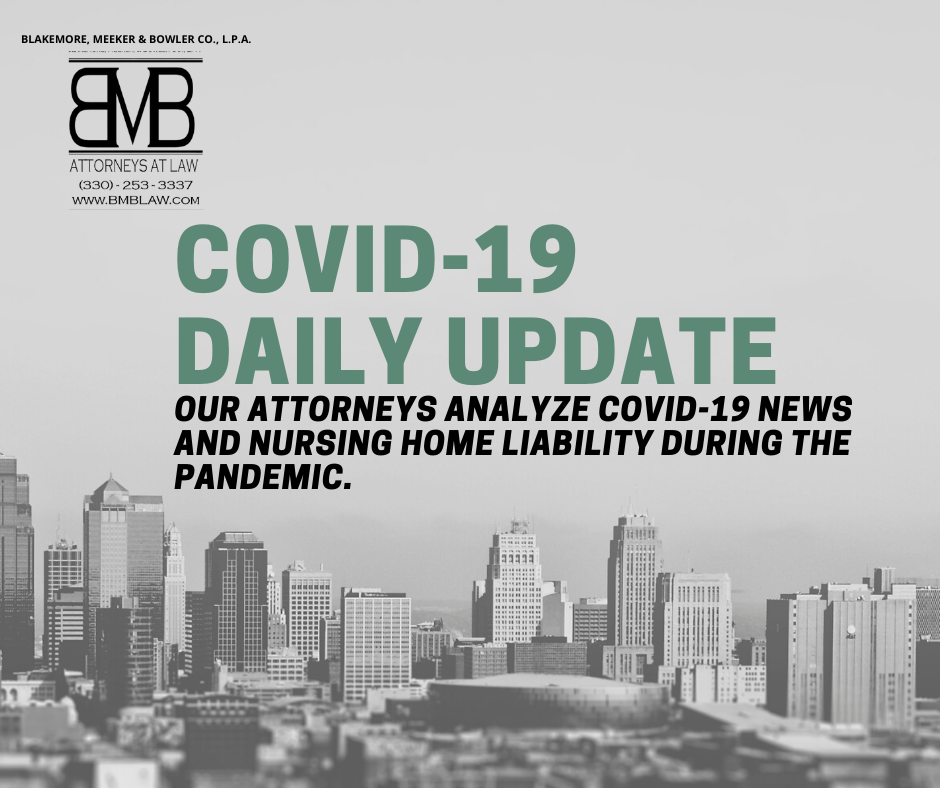- The CDC’s Moratorium on Evictions: What Landlords and Tenants Need to Know
 by Freeland D. Oliverio, Attorney at Law
by Freeland D. Oliverio, Attorney at Law email: [email protected] ::
email: [email protected] ::  office: 330.253.3337 ::
office: 330.253.3337 ::  mobile: 330.760.2494
mobile: 330.760.2494On September 4, 2020, due to the Covid-19 pandemic, the Centers for Disease Control & Prevention
(CDC) executed an order that prohibits landlords from evicting their tenants under certain situations.
Since then, I have received some interesting phone calls from both landlords and tenants concerning the
Order.
Many tenants seem to be under the impression that the CDC has effectively rendered them eviction-proof,
allowing them to simply break their leases without any repercussions. Likewise, some landlords are under
the impression that they are now prohibited from collecting rent and must now simply accept a loss of
income from their rental properties. Neither of these notions are correct.
In the interest of clearing the air on the CDC’s Order, here are three main points that everybody should be
aware of:- The CDC’s Order means that landlords cannot evict tenants solely due to nonpayment of
rent.
When landlords evict tenants, they must give a reason prescribed by law. The Order effectively prohibits
landlords from evicting tenants due to nonpayment of rent.
The CDC, in instituting the Order, recognized that thousands of people have lost their jobs, and therefore
their ability to pay rent. The Order was the CDC’s way of preventing people from being forced to leave
their homes during a pandemic due to factors that are beyond their control.
So, the CDC’s Order does not mean tenants can simply break the terms of their lease, damage property, or
engage in criminal activity on the property. A landlord can still evict a tenant if it is for any reason other
than nonpayment of rent. However, the tenant must still take certain actions in order to qualify under the
Order; this is covered more in Part 3 below. - The CDC’s order does not mean that a landlord cannot still collect rent or fees.
Although landlords cannot evict tenants due to nonpayment of rent, that does not mean that tenants are off
the hook for monies owed to their landlord.
The Order does not relieve the tenant of any obligation to pay rent, make a housing payment, or comply
with any other obligation that the individual may have under their lease. Landlords can still charge or
collect fees, penalties, or interest as a result of the tenant’s failure to pay rent or fees on a timely basis.
So, while landlords cannot evict a tenant due to nonpayment of rent, they still have a right to collect any
money or fees that they are owed. - To qualify under the CDC’s Order, tenants must sign a declaration form swearing that they
have met specific qualifications.
Tenants should not mistakenly believe that they can simply show up to an eviction hearing, tell the judge
that they cannot be evicted due to nonpayment of rent, and think that they will avoid eviction. Tenants
must sign a document, known as the Declaration Form, swearing under penalty of perjury that they
qualify under the Order.
Tenants should not mistakenly believe that they can simply show up to an eviction hearing, tell the judge
that they cannot be evicted due to nonpayment of rent, and think that they will avoid eviction. Tenants
must sign a document, known as the Declaration Form, swearing under penalty of perjury that they
qualify under the Order.In filling out the CDC’s Declaration Form, tenants swear to each of the following:
- They have used best efforts to obtain government assistance for rent or housing;
- At least one of the following requirements applies to them:
- They expect to earn no more than $99,000.00 in annual income for 2020; or
- They were not required to report income in 2019; or
- They are unable to make full rent payment due to substantial loss of household income,
- They are using best efforts to make payments as close to full payments as possible; and
- Eviction likely would render them homeless or force them to move into and live in close quarters in new congregate or shared living setting because no other housing options are available.
While the CDC’s Order to halt evictions seems to be uncharted legal territory, the attorneys at Blakemore, Meeker, and Bowler are well-seasoned in the field of landlord-tenant law. Whether you are a landlord or a tenant, our attorneys are skilled litigators who will effectively guide you through the eviction process.
If you have any questions concerning evictions, or any other aspects of landlord-tenant law, please call our office at (330) 253-3337 for your free consultation.
- The CDC’s Order means that landlords cannot evict tenants solely due to nonpayment of
Blakemore, Meeker & Bowler Co., L.P.A.
Integrity. Community. Experience. | A full service law firm with a proud history of serving individuals, families, and businesses in the greater Akron area since 1969.

